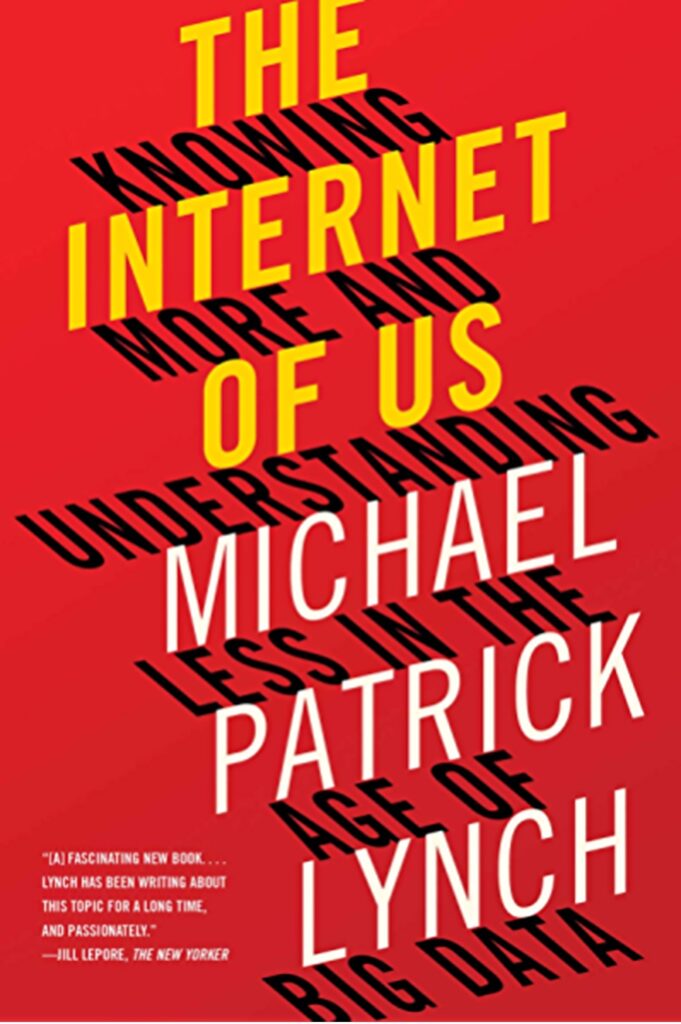Sharing my learnings from the book, Internet of Us by Michael P. Lynch
Internet of Us by Michael P. Lynch
We used to say “seeing is believing”; now, googling is believing. With 24/7 access to nearly all of the world’s information at our fingertips, we no longer trek to the library or the encyclopedia shelf in search of answers. We just open our browsers, type in a few keywords and wait for the information to come to us. Now firmly established as a pioneering work of modern philosophy, The Internet of Us has helped revolutionize our understanding of what it means to be human in the digital age. Indeed, demonstrating that knowledge based on reason plays an essential role in society and that there is more to “knowing” than just acquiring information, leading philosopher Michael P. Lynch shows how our digital way of life makes us value some ways of processing information over others, and thus risks distorting the greatest traits of mankind. Charting a path from Plato’s cave to Google Glass, the result is a necessary guide on how to navigate the philosophical quagmire that is the “Internet of Things.”

- Our ability to think has brought us to where we are today – to a world of knowledge, where information is created and disseminated with incredible speed via the internet. However, the internet is in the process of radically transforming the very fabric of our knowledge and thoughts.
- we’re moving toward a digital future that looks a little different than science fiction. Web 2.0 was all about collaboration – think Wikipedia and social networks. Right now, we’re already on the road to Web 3.0, or the Internet of Things, where intelligent, connected devices bring the internet into every aspect of our day-to-day lives. But these connected gadgets are more than just helpful, high-tech tools; they’re also data-collecting machines. Smart devices track user behavior and share information with other connected objects.
- In our digital world, devices collect factual information, but don’t necessarily create new knowledge. It’s knowledge, not information, that’s crucial for a functioning society.
- to ensure that we’re sharing reliable knowledge rather than just information, we need to be able to think independently and critically. Unfortunately, our digital culture places less and less emphasis on these very skills and, as a result, our society may well be heading toward an intellectual crisis.
- Today, we have unprecedented access to information, but much of the content circulating online isn’t reliable knowledge. When we’re bombarded with content of all kinds online, our brains respond in the same way we do to our environments. Just as we trust that our vision shows us the world exactly as it is – even though our brain filters out most of the details – we also tend to blindly trust information online.
- In the online world, our behavior is different: we don’t seek out the advice of experts on controversial topics, since all we’re after is validation of our own views. As a result, our society becomes polarized on topical issues. Such divisions in society are a very real threat. In order to truly address the issues causing controversy among communities, people need to find common ground and engage with one another.
- Today, our society urgently needs better data protection, especially as we enter the age of the Internet of Things, where our everyday behavior will be under constant surveillance. Clear data protection laws can prevent companies from burying their real data-harvesting practices within dense privacy policy documents. Taking back control of our information is the first step to preventing our privacy from being harmed.
- Before the internet age, we relied on the knowledge and experiences of experts. Today, we rely on thousands of people’s opinions – this means that anything can be seen as true, as long as enough people believe it. The internet may allow us to bring knowledge together more effectively, but as a networked group, we’re much more likely to come to the wrong conclusion. As individuals, it’s our responsibility to ensure that the beliefs we hold and contribute to our network are well grounded. This way, our society will make it through the new age of the internet intact.


Leave a Reply